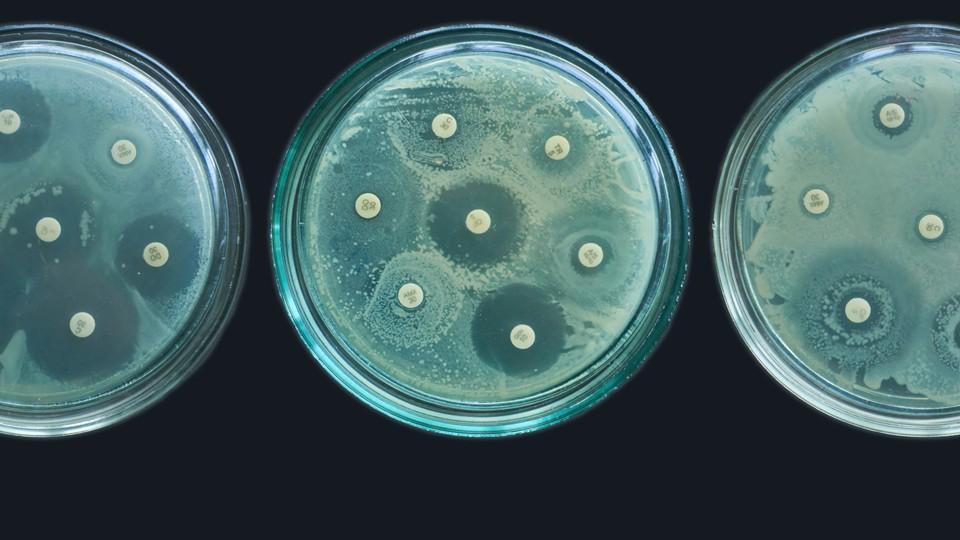Who will pay the price for inaction on superbugs?

While the UK government has been applauded for its efforts in raising awareness about antimicrobial resistance, its efforts to convince pharma to invest in new antibiotics have so far been unsuccessful. Richard Staines reports on a new payment scheme that aims to incentivise industry to invest in new antimicrobial drugs.
There have been high profile reports by a world leading economist and countless declarations from the UK government about the public health risks posed by antibiotic-resistant superbugs.
Eye-catching initiatives such as the appointment of chief medical officer Dame Sally Davies as a special envoy on antimicrobial resistance (AMR) have attempted to make the issue a priority for leaders in governments the world over.
But five years after the UK government launched its review of the causes of AMR spearheaded by Jim (now Lord) O’Neill, there has been little or no progress in getting new drugs to the market.
The reason: big pharma still does not think it will get enough of a return on investment from researching new antibiotics.
Instead of investing in antibiotic R&D, many big pharma CEOs are pulling out of antibiotics.
Sanofi last year handed its antibiotic research to German biotech Evotec, and Novartis stopped antibiotic research around the same time, selling off three experimental antibacterials to startup Boston Pharmaceuticals.
Allergan has been attempting to sell its antibiotics business and it’s highly unlikely the unit will survive the inevitable cost-cutting round of its mega-merger with AbbVie in the coming months.
This leaves the likes of Merck & Co, Pfizer and GlaxoSmithKline holding the torch for antibiotic R&D in big pharma – and it’s a flame that spluttering in the harsh economic winds that decide the direction of research in big pharma.
At the moment those winds are pushing firms inexorably towards research into areas such as oncology, inflammatory diseases, and expensive rare disease therapies.
While big firms’ priorities are elsewhere, smaller firms trying to research antibiotics are struggling as the case of a US biotech perfectly demonstrates.
Achaogen last June managed to get an antibiotic approved by the FDA to treat carbapenem-resistant Enterobacteriaceae, a lethal superbug that can emerge in intensive care units and can kill around half the people it infects.
Despite its success getting the drug approved, Achaogen filed for bankruptcy in April after sales amounted to less than a million dollars after six months on the market.
New system
These are only ever going to be niche products, and hospitals don’t have the cash to pay for expensive new drugs.
These factors mean that the current economic paradigm surrounding drug development is failing when it comes to incentivising new antibiotic research.
The UK government, along with NICE and NHS England are hoping to change all this with proposals for a new system for reimbursing antibiotics.
They hope that a new subscription approach will see companies paid upfront for access to new antibiotics based on their value to the NHS rather than volume of drugs sold, according to health secretary Matt Hancock.
In a launch statement NICE gave more details about the payment scheme and how it sits within a five-year action plan on antimicrobial resistance launched by the government at the start of the year.
NICE and the Department of Health and Social Care have already sponsored research looking at health technology assessment (HTA) methods for antibiotics, carried out by an expert unit at the National Institute for Health Research (NIHR).
Meanwhile the researchers from the NIHR’s Economic Methods of Evaluation in Health & Care Interventions unit – confusingly referred to as EEPRU – found that capturing the value of a new antimicrobial is complex and may not always be feasible as accurately estimating benefits can be so difficult.
But the NIHR’s conclusion was that an adapted HTA framework, informed by health economic modelling and expert opinion, could be developed to assess the value of novel antimicrobials.
Going forward, NICE, NHS England and NHS Improvement have created a joint project supported by EEPRU to develop and test innovative models to evaluate and purchase new antimicrobials.
A first phase will focus on how to adapt NICE’s HTA framework, and develop an outline reimbursement and payment model.
Two products will be selected for trial assessment and commercial discussions by the end of the year.
The second phase, which will involve the assessment of the candidates, is expected to be finished by the end of next year.
Global threat
The Association of the British Pharmaceutical Industry (ABPI) acknowledged that AMR now poses a “global threat”.
Dr Sheuli Porkess, executive director of research, medical and innovation at the ABPI, added the strategy “is an example of how the UK can lead the world in this fight and hopefully brings us closer to fixing the problems that have hampered investment in antibiotics research for so long”.
She added: “Patients can’t afford to wait. Our members are ready to get started, and the sooner we get this pilot up and running, the sooner we can apply what we find to other antimicrobials in development.”
It’s good news that the UK government is making this a priority – but one country alone cannot solve the problem.
The UK made up around 2.4% of the global pharma market according to 2016 figures cited by the ABPI, and will need support of other big countries willing to adopt similar schemes or find other ways to reward pharma for antibiotic research.
In the US, which accounted for around 44% of the global market in 2016 pricing is a vexed issue, as president Donald Trump and other politicians are pushing for prices to be reduced to make drugs more accessible.
These measures have met tough opposition from politicians who believe that free pricing is the best way to ensure that pharma is fairly rewarded for the many billions of dollars spent on R&D.
While the UK’s commitment to the problem is laudable, it could face an uphill struggle to convince policy makers in the US to take notice.
But until things change, it’s likely that there will be more cases like Achaogen in the US, where free market economics are unable to support the launch of a crucial new antiobiotic – with potentially devastating consequences for patients.












